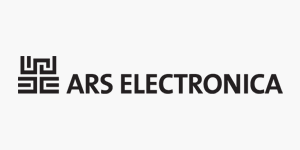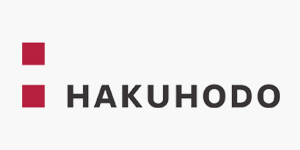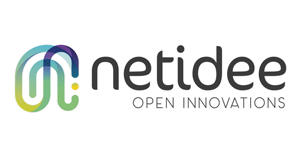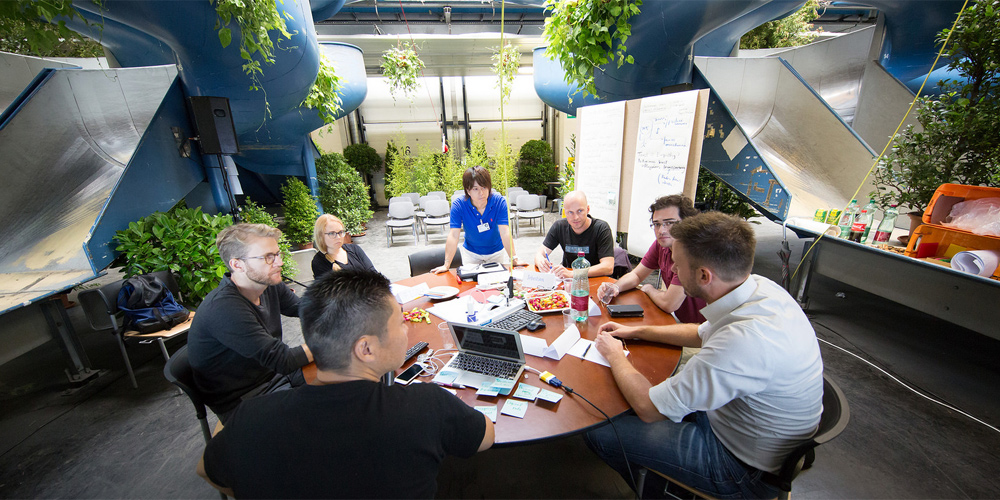
Credit: Tom Mesic
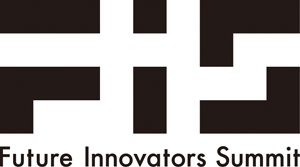
Missions for Tomorrow
From September 7-10, at Ars Electronica Festival 2017
Following its successful premiere at Ars Electronica Festival 2014, and subsequent inspirational editions in 2015 and 2016, the Future Innovators Summit (FIS) has established itself as a dynamic think-tank and key program within Ars Electronica Festival. Now in its fourth year, Future Innovators from different cultures and backgrounds and from different fields such as artists, designers, scientists, engineers, entrepreneurs, social activists and philosophers will gather in September in Linz to explore new ways of collective brainstorming and creative prototyping on the crucial questions of the future.
Supported by experienced partners such as Hakuhodo (JP) and Internet Foundation Austria as well as outstanding experts from all over the world, the Future Innovators of the Future Innovators Summit 2017 will be challenged to look for the ultimate Creative Question which will lead us to think about Missions for Tomorrow– concepts which are inevitably linked to the main topic of the festival “Artificial Intelligence – The Other I”.
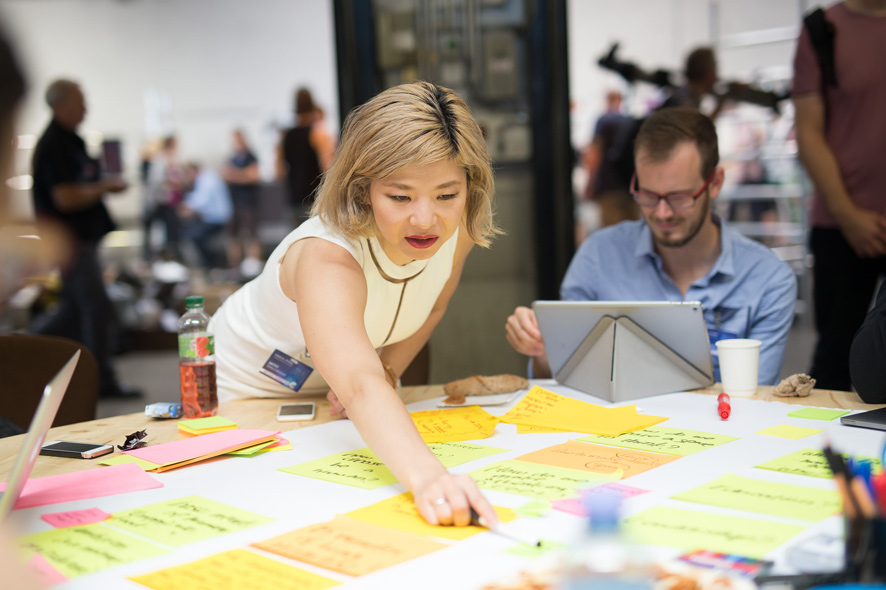
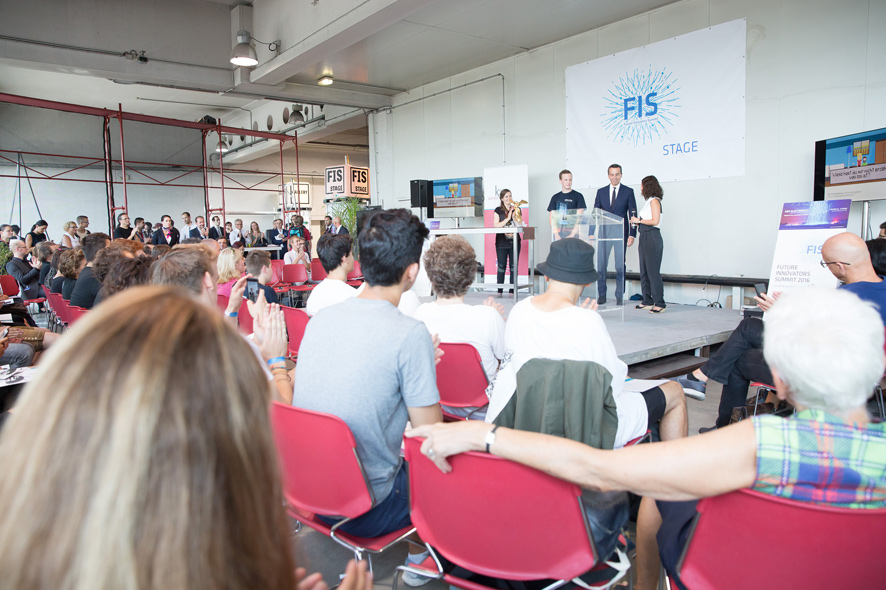
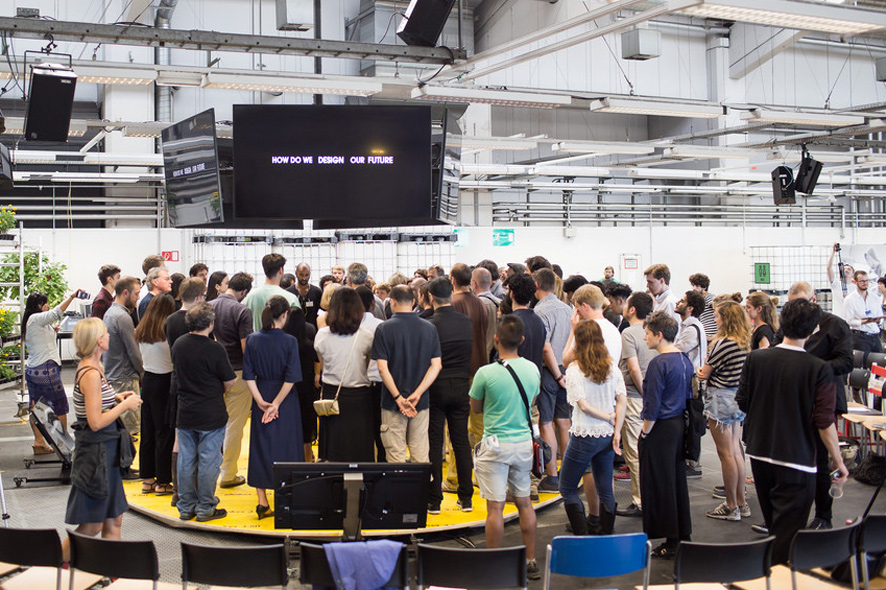
The creative questions from Future Innovators Summit 2017
- Future Humanity Group A:
“How can AI enable us to reach new heights of humanity?” - Future Humanity Group B:
“What should AI not decide for us and what should AI decide for us?” - Future Work Group:
“How would society progress if basic needs are guaranteed?” - Future Home Group:
“How will Artificial Consciousness co-author the future narratives of homes?”
What are the themes of FIS2017?
The Future Innovators of the Future Innovators Summit 2017 will be set the challenge of looking for the ultimate Creative Question for each theme, which will lead us to thinking of Missions for Tomorrow.
Future Humanity
When we are facing a world where machines could evolve to be better thinkers and better doers than humans, what future awaits us? And what will be our motivations to live? Future Humanity seeks out our visions and missions in correlation with technology, other beings and ourselves.
- How can we be more human?
- How can a machine love a human? And vice versa?
- How can we live as a multiple “I”?
Future Work
Who or what defines our concept of work in today’s world and, when and how will this change? For what reasons and mission do we work, and what will we as humans be looking for in the future? Future Work will explore how and why we work and what the concept of work will really look like in years to come.
- What if we don’t need to work anymore, what do humans need instead of working?
- How can AI’s and humans share the same mission for the future?
- What kind of education is needed for joblessness in the 21st Century?
- What’s the role of social capital in driving regional sustainable growth and innovation?
Future Home
What is your home? The meaning of home has continuously been evolving since humans first walked the earth. Once considered as a refuge for survival, living and relaxing, but now for future nomads, what will smart homes, creative hubs, digital communities, cities and nation states be? What other factors of homes need attention for us to acknowledge the place that we take shelter, as home? Future Home asks you to evolvement of homes in the future.
- What factors give us the feeling of home in the future? And what will the home look like?
- How can we build a sense of solidarity as family and community in the future?
- How can AI’s become a part of your family?
Program overview of FIS2017
| Day 1, THU Sept. 7, 2017 | |
| 1pm-2:30pm | Kick Off Presentations of FIS participants |
| Day 2, FRI Sept. 8, 2017 | |
| 10am-6pm | Free Festival Inspiration Day with Mentor Lectures |
| Day 3, SAT Sept. 9, 2017 | |
| 10am-5pm | Intensive Workshop Day @ FIS workspaces |
| 5.30pm-6.30pm | Workshop Wrap Up Panel @ Lecture Stage As the title of this panel suggests, the faciliators and Innovators of the Workshop Future Innovators Summit try to sum up and represent an interesting overview of their group discussions from the previous „Intensive Workshopday“ to the festival audience. |
| Day 4, SUN Sept. 10, 2017 | |
| 5pm-6.30pm | FIS Final Presentation @ Lecture Stage What are the crucial questions of our future? What are the Creative Questions of the Future of Humanity, the Future of Work and the Future Home? These are questions which inspire us to think about Missions for Tomorrow and will be presented at the FIS Final Presentation by 20 Future Innovators, including their challenges and what they have been discussing and experiencing during the past four days of the Future Innovators Summit 2017. |
FIS on Twitter
Future Humanity – Group A
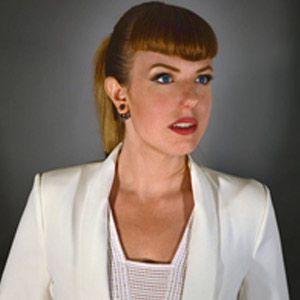
Amy Karle (US)
www.amykarle.com
“Many people envision Artificial Intelligence – AI – as something outside of ourselves – as a machine or a robot. I’m concerned with how to use these technologies to empower us to be more human, so that the same technology that we would embody in a robot we could also embody in a human being – to become a smarter, healthier, more emotionally intelligent person. When we use our technology in this way and actually integrate it into our bodies to become better lovers, better parents, better friends and better people – the boundaries of what is “artificial” start to disappear.”
Amy Karle (US) engages questions about what it means to be human and creates representations of our internal states. As an artist and designer, Karle is also a provocateur and a futurist, leveraging technology to create work that catalytically examines material and spiritual aspects of life; opening future visions of how technology could be utilized to support and enhance humanity.
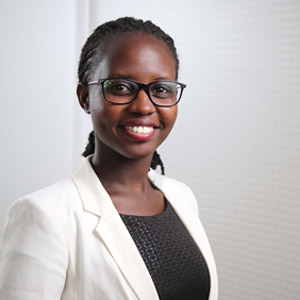
Brenda Katwesigye (UG)
www.wazivision.com
“I believe that if we use technology for social good, then that makes us more human. Because the truth is, technology is not going to move backwords. It’s always going to advance and we need to advance with the times. However, as technology advances, we also need to advance with our will and drive to take advantage of its growth to create a positive impact on people and our communities.”
Brenda Katwesigye is the co-founder and CEO of Wazi Vision, a company that builds mobile technologies for diagnosis of eye defects and provides eye glasses made from recycled material to school going children in Uganda. She is passionate about creating sustainable solutions that make health care more accessible, available and affordable. A calculated risk-taker with deep tech industry knowledge, Brenda has championed various mobile health care solutions, winning awards such as the Africa Rethink Award for African Female Entrepreneur 2016 or the Health Award for best Innovation in Health, among others.
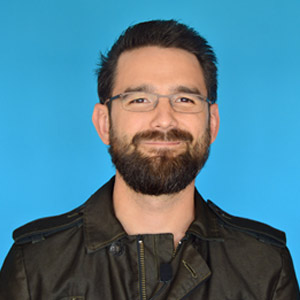
Benjamin Julian (US)
“Try and deconstruct your own limiting beliefs. The question that I ask myself everyday is: What is the absolutely best case scenario for our products and our experiences that we invent? If we can think through those far enough, then we can create something groundbreaking.”
Benjamin Julian, industrial designer and fine artist in San Francisco, CA. His design work includes some of the most technologically dynamic products that will shape our future. His work has been shown by some of the most successful international design companies, including General Motors, Palm, HTC America, Incase, Hewlett Packard, Toyota, and Ford Motor Company. Most recently, his transportation product, Google X’s Self-Driving Car, was the winner of London Design Museum’s “Design of the Year Award”. Currently, Benjamin works as a digital designer for Nuro Inc, a cutting edge robotics startup focused on autonomous transportation in Silicon Valley, California.
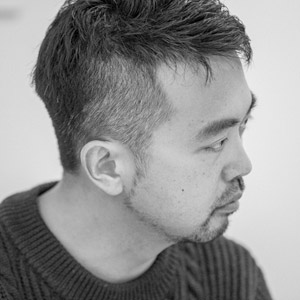
Dominique Chen (FR/JP)
ephemere.io
“How can we live as a multiple “I”? We need to detach ourselves from the modern notion of the strong self, by means of practices of a softer co-selves, or inter-dividuals. I’m studying the co-speech (« Kyo-wa ») structure apparent in Japanese language that promotes this cognitive mode, and I believe information technology is fit to help us for this purpose.”
Associate Professor at Waseda University, Co-Founder of Dividual Inc., Director at NPO Creative Commons Japan. Dominique started his career as a researcher at the NTT InterCommunication Center. He has then been active in promoting the Creative Commons license in Japan since 2004, and is on the Board of Directors of Creative Commons Japan since 2007. In 2008, he started Dividual, an IT startup in Tokyo, where he has been developing numerous web services and smart phone apps one of which was awarded Best of AppStore from Apple in 2015 & 2016. Dominique is also an author of several books on Open Source and Free Culture, Neo-cybernetics, Philosophy of Information, and has translated books on Positive Computing, Reality Mining and Technological Singularity.
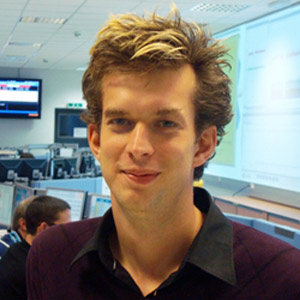
Daniel Dobos (DE/CH)
“Artificial Intelligence makes us more human as we can teach our information infrastructure like children – and it makes us less human as we can ‘clone and kill’ our’ digital children’ without costs.”
Daniel is a particle physicist at CERN, Geneva. He is an expert for silicon and diamond particle detectors to study collisions at the Large Hadron Collider. In order to explore the benefits of new technologies he co-founded THE Port association. It combines creative minds in interdisciplinary teams to work on humanitarian technology related benefits to society. He advises the Global Humanitarian Lab (GHL), the ICRC and Impact HUB Geneva on technology foresight and coordinates the program for the Geneva Global Goals Innovation Day (G3iD).
Future Humanity – Group B
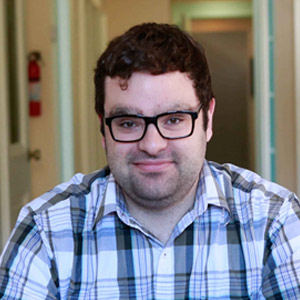
Alexander Reben (US)
www.areben.com
“Humanity and technology have been intertwined ever since our early ancestors picked up a bone and used it as a tool. Technology has been driving our evolution and will continue to do so in ever more amazing ways. Technology has the potential to help us expand, allowing us to be more human.”
Alexander Reben explores humanity through the lens of art and technology. His work deals with human-machine relationships, synthetic psychology, artificial philosophy and robot ethics among other topics. Using “art as experiment” his work allows for the viewer to experience the future within metaphorical contexts. Alexander has exhibited at venues both in the U.S. and internationally including: The Vienna Biennale, MAK Contemporary Art Museum, The Vitra Design Museum, Ars Electronica, Volta, The Whitney Biennial, etc. Reben is a graduate of the MIT Media Lab where he studied human-robot symbiosis and art. He is a 2016-2017 WIRED innovation fellow and a visiting scholar in the UC Berkeley psychology department.
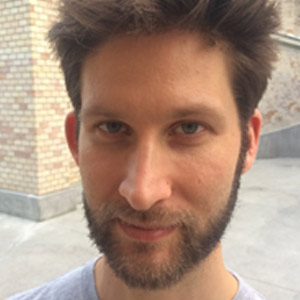
Imre Bard (HU/UK)
hackthesenses.com
“How can we be more human? I believe we need to rethink whether being human is inherently valuable. Instead, we might consider what aspects of our humanity deserve praise and what needs to be overcome. Perhaps the prospect of AI can prompt us to reflect on this.”
Imre has a background in philosophy, cognitive science and the social study of science and technology. He is currently a PhD student at the London School of Economics, where his research looks at social representations of emerging technologies, such as genetic engineering, neuroenhancement, sensory augmentation and artificial intelligence. He currently runs Hack the Senses, a multidisciplinary experience design collective, which was launched in early 2016 with support from the Wellcome Trust. Hack the Senses explores the science of perception and the senses drawing on a range of formats, including talks, workshops, exhibitions, games and immersive experiences. The collective’s work has been presented at various events and festivals, including the British Science Festival, Bluedot, the V&A Digital Design Weekend, and New Scientist Live.
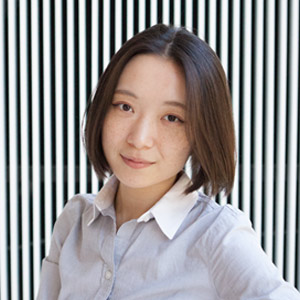
Xin Liu (CN/US)
xxxxxxxxxinliu.com
“I try to look at the moments of self-(re)organization and creating ripples in the fabric of self. I ask each of us to pay close attention to our shared psychological, emotional, cultural, and perceptual approaches to the inner and outer world and try to bring light back to the sensitivity of self.”
Xin Liu is a media artist, engineer, and researcher. Mixing scientific research with personal narratives, she creates transformative, participatory experiences and bodily objects to examine the constitution of subjectivity and affects: walking straight with a sand tank to measure time, synthesized tears of her own to share with the audience, a full sensory film of being a tree, etc. Xin has shown her work internationally at events and venues including Boston Museum of Fine Art, OCAT Shanghai, Minsheng Contemporary Art Museum, Eyebeam, etc. As an HCI researcher, Xin has worked in institutions including Microsoft Research NYC, Microsoft Research Asia, Google ATAP, TASML and presented her research at international conferences including UIST, UbiComp, TEI, DIS and Augmented Human.
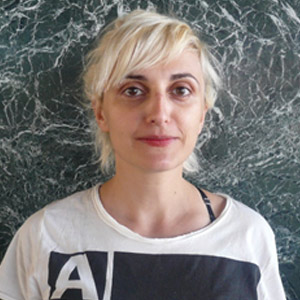
Pinar Yoldas (TR/US)
pinaryoldas.info
“The biggest challenge for future humanity is not about adopting to new technologies that are in the making now but adopting to environments and ecologies that are not intended outcomes of these technologies. Invention of wholistic cultures to encompass the consequences of human actions is our responsibility now more than ever.”
Pinar Yoldas, Ph.D. is an infradisciplinary scholar and artist whose work operates under the framework of science and technology. Her curiosity-driven work has been exhibited internationally in group shows including the Istanbul Biennial, Nordic Biennial, ZKM, National Museum of Art Beijing, Transmediale, Sonic Acts and solo shows in S2S Amsterdam, Polyteknikum Moscow, Schering Stiftung Berlin adn Roda Sten Konstall Sweden. She is a 2015 John Simon Guggenheim fellow and a Future Emerging Art and Technology award recipient. She had her first solo exhibition when she was five and holds a bronze medal in Chemistry Olympics.
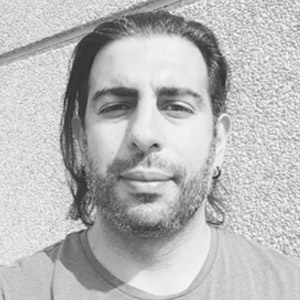
Foad Hamidi (IR/US)
www.foadhamidi.info
“I believe the line between the artificial and natural is socially constructed. We can be more human by embracing our hybrid existence and shaping this reality.”
Foad is a Human-Computer Interaction (HCI) researcher and designer. He specializes in the participatory design and evaluation of tangible and embedded systems, including digital living media systems, for children and adults with cognitive and/or physical disabilities. He is also interested in using digital media to facilitate creative and learning processes in intercultural settings. He has a PhD in Computer Science from York University, Toronto and am currently a Postdoctoral Research Associate at the University of Maryland, Baltimore County.
Future Work
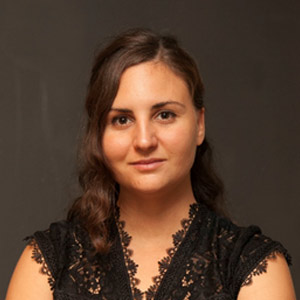
Isidora Todorovic (RS)
www.isidoratodorovic.com
“Tectonic shifts attributed to technological progress have usually been accompanied by social unrest because of the inability of society to catch up to its progress, a failure of imagination. But, in the age of virtual global networked intellect, we can collaboratively imagine another better society and in imagining it, we are already on our way of creating it.”
Isidora Todorović finished her BA and MA at the New media department, Academy of Arts, University of Novi Sad, Serbia where she is currently teaching. She created award-winning political location based android game “One Good Day”, and is Serbian national selection winner for “European Digital Art and Science award”. She is the author of several theoretical texts and curatorial projects dealing with new media culture, especially focusing on such practices in Serbia. Her interests span from DIY culture, political games, cyberpunk feminism and writing critical texts about the Internet culture.
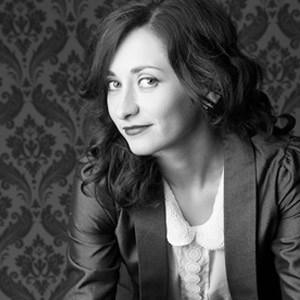
Irina Paraschinoiu (RO)
www.urbaninc.ro
“Any discussion about the future of work should first and foremost tackle the lower skilled, who are running the highest unemployment risks due to automation. If the jobs of the future will involve substantially different tasks, then education and training need to focus on building complex problem solving and analytical skills, for example through a STEAM approach. Regions themselves, especially the lagging ones, need to push for more innovative functions in their economic mix.”
Irina is a researcher and urban development specialist trained in London and the Netherlands and based in Bucharest, Romania. She co-founded the Romanian think tank Urban INC in 2010, driven by the idea that cities are an excellent playground for accelerating change, when innovative ideas are combined with thoughtful action. She has worked on participatory methodologies in urban planning, cultural innovation programmes, public policy analyses in housing and regional development. Irina was a researcher within OSI’s Think Tank Young Professionals Development Programme and a Curator for Bucharest bid for Capital of Culture 2021. She an LSE alumna (MSc Regional and Urban Planning Studies, 2014).
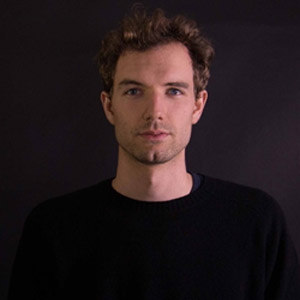
Sean Hammett (US/UK)
seanhammett.com
“Artificial intelligence will be, and in many ways has already become, the next revolution in technology. Yet we don’t have an intuitive sense of how it effects our lives. As humans, our own intelligence remains the ultimate reference for AI, but we must reject the trend towards human mimicry in robotics and intelligence research. Authentic interactions must be the future of AI, in work and in life.”
Sean is an artist and designer from northern California. He earned a BA with a double major in Engineering Sciences and Studio Art from Dartmouth College in Hanover, New Hampshire in 2014. He spent a year working for the Studio Art Department at Dartmouth College developing his sculpture practice and teaching before beginning the Innovation Design Engineering course at the Royal College of Art and Imperial College London in 2015. His work is primarily concerned with redefining our interactions with contemporary technology.
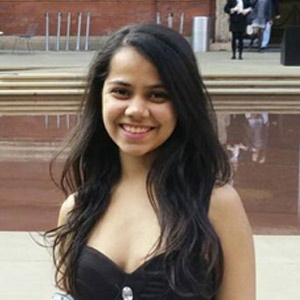
Shwetal Shah (IN)
eraseallkittens.com
“Repetitive, manual work—no one who’s doing it, is really enjoying it. Technology replaces and creates. It replaces manual work and creates new opportunities—new tasks. And productivity creates growth, which creates new kinds of work. It is a virtuous cycle. It’s so easy to talk about it in binary terms. I just don’t think that’s the reality. Computers are always going to be more efficient than us. For us to be ¬better than technology, we have to find our inner human use as a way to find an intersection between the heart’s gladness and world’s hunger.”
Shwetal Shah has worked as an Analyst for Onepoint Consulting in London and now works at Drumroll HQ developing a video game teaching programming to kids. After graduating with a Masters in International Marketing, in her spare time she runs Explore-Science, an organization to promote women scientists work, and she’s working on a project to tackle isolation (Morsel). Shwetal was recently named at the Code First: Girls „Ones to Watch 2017“ and nomitated for the Franco British leadership programme. She won several awards inlcuding the o2 Think Big Best STEM Award 2016, BLP female entrepreneur of the year award 2017, and was listed under the Top 50 Women in Engineering at The Telegraph.
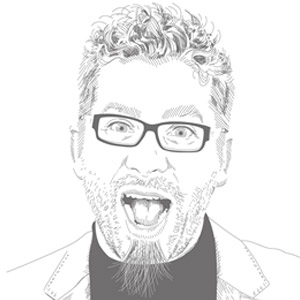
Nico Grienauer (AT)
www.acolono.com
“Is agile the solution for every type of work and could it be implemented everywhere?
Is an unconditional basic income a condition for the next evolutionary step of work?”
Nico Grienauer loves designing web-systems, organizing community events and spreading the word about Open Source. He is founder of acolono, a web-development company in Vienna with focus on Drupal, styleguides and an agile work environment. As an active Drupal Austria board member, he currently initiates “Open Minds – the Austrian Open Source Award” to push Open Source Software/Hardware/Data. To support the youngest, he is an Ambassador of CodeWeek, a project of the European Commission to teach children how to code.
Future Home
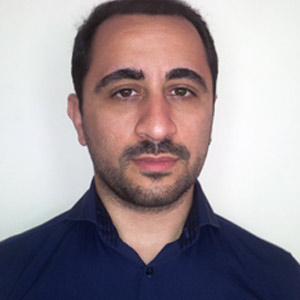
Stavros Didakis (GR/UK)
www.soniconlab.com
“There is no place like 109.107.36.145”
Source: Didakis, S. (2016) In Search of the DomoNovus: Speculative Designs for the Computationaly-Enhanced Domestic Environment, PhD Thesis, Plymouth University: Plymouth, p. 188)
Stavros Didakis (PhD) is an international maker, researcher, and academic, creating interactions, systems and installations on possible technological futures with practices that merge various disciplines, such as computational media, Internet of Things, interface design, as well as sonic, visual, and interactive art. His current research focuses on the development on architectural augmentations and inhabitant personalization. At present Stavros is an Associate Professor and Programme Leader of the courses BA/BSc Digital Media Design / Internet Design / Game Arts and Design at the University of Plymouth (UK), and a Visiting Lecturer in Peking University and South University of Science and Technology (China).
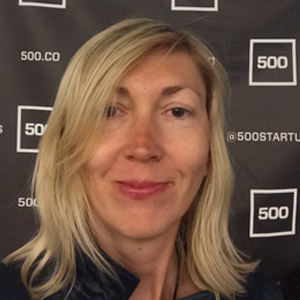
Mateja Rot (SI)
“What is the future home? It continues to be a place for gathering, a place for rest and shelter where one feels safe and secure. But at the same time its role is shifting considerably in times of exponential technologies, as it becomes a collaborative space for well-being, accommodating the highest end services to the user – creator. In this process AI serves as a tool to reshape and customize the environment to individual/community needs, along with adding upgraded abundance mindset to the equation and doing this with ease and fast pace. Home becomes an extended space, stretching past the limits of planet Earth.”
Matjea is a Cultural Researcher and Urbanist, striving for knowledge and artistic experience that encourages creativity, self-realization and bravery to implement unique ideas in particular social, urban and scientific setting. She has been contributing towards open future commons, building powerful smart solutions for urban communities and improving the livelihood in neighborhoods around Europe. Mateja was selected for MIT GE Bootcamp Brisbane 2017. She also has completed an Entrepreneurship program at Stanford University and has established a network of contacts for future collaboration in AI, neuroscientific research, IoT, design thinking and innovation.
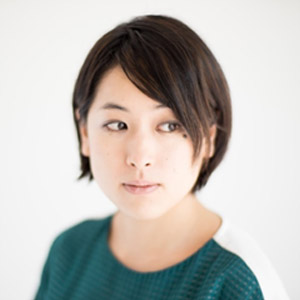
Arina Tsukada (JP)
boundbaw.com
“How can AI’s become a part of your family? We can consider AI as a mythical creature with our fertile imagination of fantasy.”
Journalist, Curator. The chief editor of Web media “Bound Baw” which featured Art & Science since 2016. I’m exploring the new possibility between Art with Science, also the multidisciplinary fields, so engaging in the broad-based approaches such as organizing a conference, exhibition, magazine, and others. The manager of Sound Art project “See by your ears” of a Japanese artist Evala. Director of a project for science communication called “SYNAPSE” since 2010. The main writing works are “Media Art Archives(book),” “Interaction Design(book),” and “WIRED Japan(magazine)” and so on.
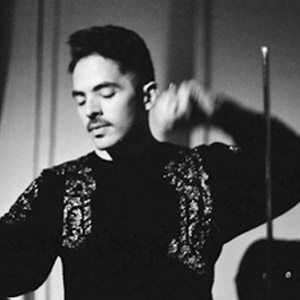
Nahum (MX/DE)
kosmicainstitute.com
“Outer space has always been a reflection of how societies envision their future. We need to inhabit space in innovative and critical ways and afterwards, implement those ideas back on our planet.”
Nahum is an artist and musician based in Berlin. He is the founding director of KOSMICA, a global institute that focuses on the cultural, critical and artistic aspects of outer space activities and their impact on Earth. KOSMICA has ongoing activities in Mexico City, London, Paris and Berlin. It has produced over 20 festivals with 180 space professionals and cultural practitioners worldwide. Nahum is also the chair of the International Astronautical Federationg Committee for the Cultural Utilisations of Space and since 2015 he is a visiting lecturer at the International Space University (ISU). Nahum is a fellow of the National System of Art Creators, National Fund for Culture and Arts in Mexico and is an associate artist at the Arts Catalyst, London.
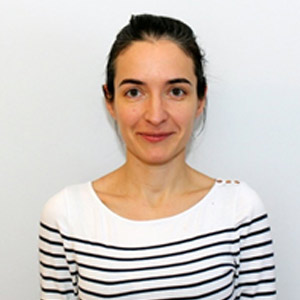
Louise Horvath (AT)
www.oiat.at
“The future home is often depicted as concerning merely adults, their entertainment, their work habits and their household chores. What does this future hold for children? What changes if their private rooms become pervaded by interconnected and smart devices? What new forms of play emerge and what will be their new normal?”
Louise Horvath is senior researcher at the Austrian Institute for Telecommunication (ÖIAT) since December 2016. She is head of a netidee research project on the “Internet of Toys” which focuses on legal and pedagogical implications of new forms of networked play. Also, she is an editor for the EU-initiative Saferinternet.at. Her professional background is in journalism and in social research. Currently, she is working on her dissertation thesis in philosophy of technology and spatial studies inquiring the phenomenon of Ambient Intelligence, as an environmental model of embedded technologies.
Mentors
Previous FIS editions have shown that the Mentorship element was extremely valuable and all participating Mentors were inspirational initiators for the Innovators – and vice versa. In a dynamic environment, innovators and young professionals will have the opportunity to exchange ideas and ask leading experts for advice.
Mentors in the past years included: Victoria Vesna (artist and professor at UCLA Department of Design), Peter Wouda (Design Director at Volkswagen Future Center), Hiroshi Ishii (Professor at MIT MediaLab), Geeta Mehta (Professor at Columbia University), Oliviero Toscani (photographer), Joachim Sauter (founding member and Head of Design at ART+COM), Alexander Mankowsky (futurologist at Daimler) as well as Robert Madelin (EU-Commission/ Senior Advisor for Innovation).
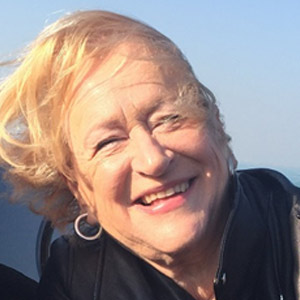
Beatrice de Gelder (BE)
www.beatricedegelder.com
FUTURE HUMANITY
Beatrice de Gelder is Professor of Social and Affective Neuroscience at Maastricht University in The Netherlands. Her main areas of expertise are visual and audio-visual affective processes related to the perception of faces and bodies as well as auditory affective signals. She has extensive experience in designing and executing behavioral, functional and anatomical imaging studies, both in healthy and diseased populations, and has participated in funded research involving populations from diverse cultural backgrounds. Her current research focuses on face and body recognition and, recently, the neuroscience of art. In 2012, she was awarded a European Research Council scientific grant for the study of cultural differences in emotional body expression. Her book on “Emotions and the Body” has recently been published by Oxford University Press.
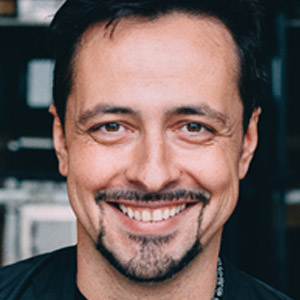
Marius Ursache (RO)
FUTURE WORK
Marius received his MD degree but quit the medical field after graduation. He founded Grapefruit, one of Romania’s first digital agencies that has won over 25 international design awards. After leaving Grapefruit in 2014, he founded Eternime, a startup that collects and preserves the thoughts, stories, and memories of people through intelligent avatars for eternity. He has also built the Digital Entrepreneurship Toolbox, an online tool used by over 3,000 startups and investors, based on the book Disciplined Entrepreneurship by Bill Aulet, a 24 step framework to product-market fit. He has mentored entrepreneurs at the MIT Global Entrepreneurship Bootcamps, Singularity University and at startup accelerators around the world. When he is not this awesome multidisciplinary person (medicine, fin-tech, product management, innovation consulting, UX/UI design, branding), Marius loves to go off-the-grid. Some recent trips include running a marathon in North Korea and visiting remote tribes to participate in weird rituals with scars that live on to tell the stories.
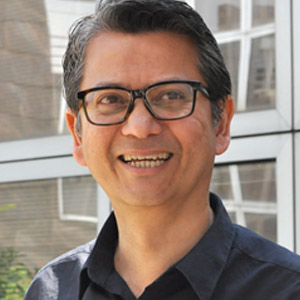
Ian Banerjee (AT/IN)
FUTURE HOME
Ian Banerjee has been lecturer and researcher at the Department for Spatial Planning (Centre for Sociology) at Vienna University of Technology since 2008. His Master’s thesis took him to the city of Curitiba, known as the ‘ecological capital’ of Brazil. It became such a life changing experience that it led him to commit himself to studying stories of urban innovation for the next 15 years. His present research revolves around the inter-linkages between education, new forms of collective learning and urbanism. He is currently working on a research project funded by the Daimler Benz Foundation – exploring scenarios of how autonomous transportation systems will shape the future of cities.
Facilitators
The workshops will be facilitated by our partner Hakuhodo. The Hakuhodo facilitators will accompany the workshop process and lead the discussions during the Future Innovators Summit.
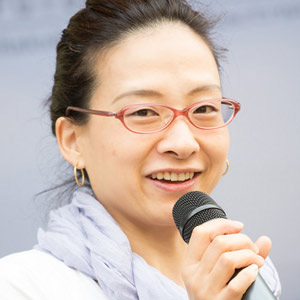
Kazuko Tanaka (JP)
FUTURE HUMANITY
Kazuko Tanaka is a trained facilitator at Hakuhodo Inc. She is also a start-up member of Hakuhodo’s new entity VoiceVision Inc.., where she aims to create co-creative environment for industry and citizens. As the leader of working mothers’ network “Hakuhodo Working Moms’ Link” Kazuko often enjoys talking of working mothers’ status and insights to the public. Jury member of Prix Ars Electronica 2016 Digital Communities.
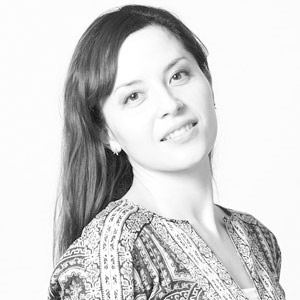
Fran Miller (JP)
FUTURE HUMANITY
Fran Miller is a Creative Producer at Hakuhodo. Fran’s extensive knowledge on global business coordination for foreign clients in Japan and Japanese business abroad, has lead to her current post as Creative Producer. Currently she leads inbound and outbound projects for re-known brands. She is half-Japanese, half-American and is bilingual and bi-cultural. Fran is an avid animal lover and enjoys cooking.
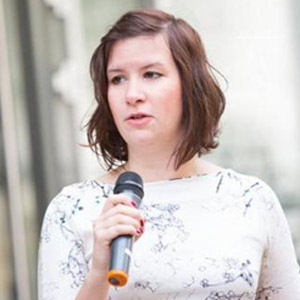
Regina Sipos (HU/DE)
FUTURE WORK
Regina works at the intersection of tech and social good: as an entrepreneur, public speaker, mentor, and an advocate for openness and inclusion. She is the Founder and Director of the Social-Digital Innovation Initiative, promoting and supporting the cross-pollination of the world of technology and social entrepreneurship and the creation of financially sustainable social businesses. Previous roles include Founder of the Young Innovators Program (the first co-creation and ideation platform of the United Nations), Manager of the Google Impact Challenge Germany accelerator program for Ashoka, and Innovation Programmes Manager at the International Telecommunication Union (ITU).
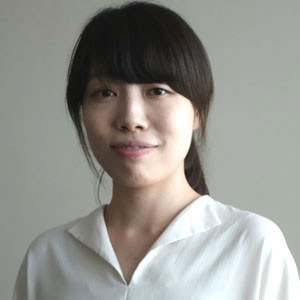
Yoko Imai (JP)
FUTURE HOME
Yoko Imai (JP) joined Hakuhodo in 2010. Her job is to make brand concepts,TV commercials, graphics and many other plans of communication as a copy writer.She wants to make new relationship between products and human by the power of “words”.
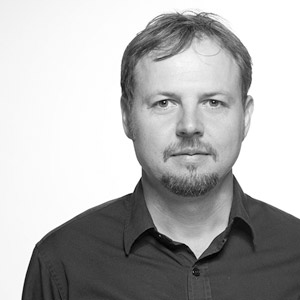
Kristefan Minski (AU)
FUTURE HOME
Kristefan Minski (AU) is a cross media artist, producer and researcher concentrated at the nexus of art and science. His primary passion is the way in which artistic thinking combined with technological application can influence and improve our future societies. His production portfolio covers a broad range of mediums and has been culminated by his work at Ars Electronica Futurelab since 2009. He is responsible for Ars Electronica’s activities in Australia including the establishment and management of bilateral partnerships with several leading Universities. He also gives lectures at many other international schools and since 2015 is pursuing a PhD about collaboration in experimental art.
About
The Future Innovators Summit is a creative system which has been developed by Ars Electronica Futurelab and Hakuhodo.
At this summit, experienced professionals as well as young entrepreneurs and social activists, technicians and scientists and of course, artists and designers will meet each other at Ars Electronica Festival for mutual inspiration and exchange of ideas and know-how. The line-up will also include opportunities for participants to engage in dialog among each other and with the public audience. Besides a broad range of lectures, presentations and exhibitions, we want to build a ‘special taskforce’ of Future Innovators all over the world who will present their ideas and projects and who will discuss the current topics of the summit.
Why is this a unique opportunity? At the moment, one can find a growing line-up of events and gatherings for young entrepreneurs and start-ups, as well as a lot of hackathons, game jams etc. where the young community of programmers and developers can interact. The same goes for festivals of young artists and conferences of young social activists. What they all have in common is an exciting and virulently inspiring atmosphere, but they often also share a certain flavor of elitist exclusivity, and it’s sometimes difficult to access them as an emerging professional or even as an outsider. Even more surprising is that you can hardly find an event at which these inspiring talents, creators and innovators can convene, and do so across the borders of their communities and disciplines. But this crossover is exactly what we’re looking for!
Ars Electronica Tokyo Initiative
The Future Innovators Summit itself has been developed by the Ars Electronica Futurelab and Hakuhodo since 2013 as part of their collaborative project entitled the Future Catalysts program. Since that year, our alliance has expanded with the creation of the Ars Electronica Tokyo Initiative, a mission-driven community to really act for shaping a better society together with artists and firms. Originally, art was not the core driving force for industries, but now we’re trying to form a unique meeting point between art and industries—stimulating innovation, visions and social discussions. The Ars Electronica Tokyo Initiative is a community for discussing potential missions for the future. A mission includes intention and also a wish to do something. But this should be done together. The City of Tokyo, the headquarters of Hakuhodo, is one of the biggest ongoing social and future-orientated experiments. Together we are now trying to catalyze this new role of art for society. The Ars Electronica Tokyo Initiative is also co-partner and a background force to sustain this Future Innovators Summit.

